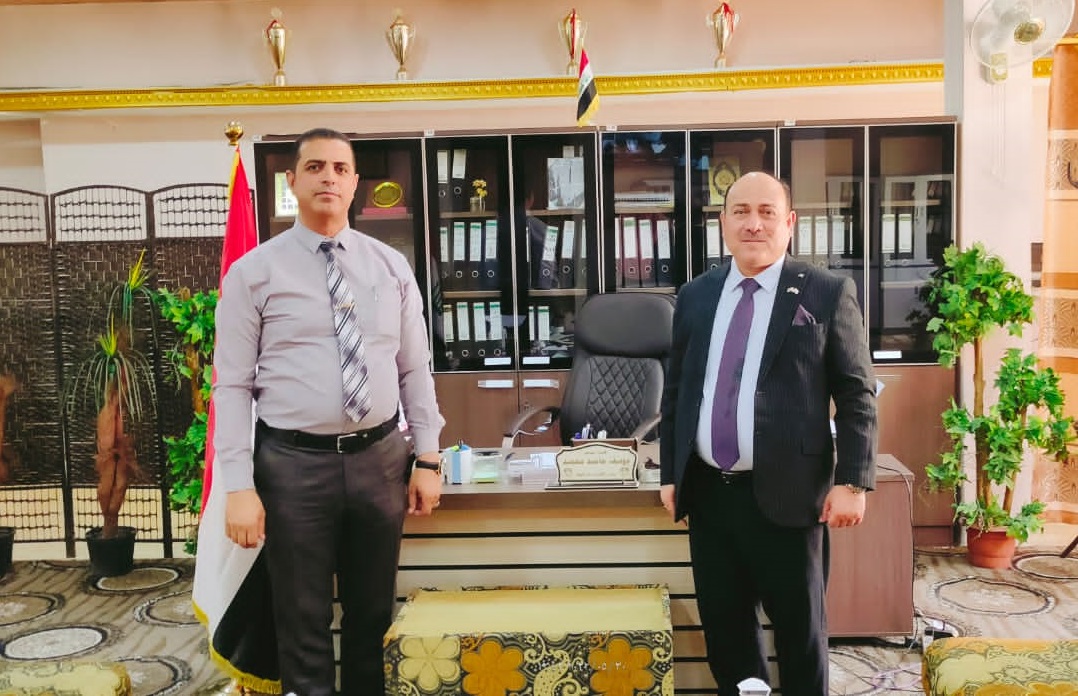The Director of the Hostels Affairs Department Visits the Hostels Departments of the University of Mosul

On the sidelines of the Ministerial Committee’s visit to the University of Mosul to initiate a doctoral study in the field of Arabic literature in the Department of Arabic Language at the College of Education for Girls, University of Mosul, the Assist. prof. Dr. Salam Abed Fayadh Al-Hassan, Director of the Department of Hostels Affairs at the University of Anbar visited the hostels departments of the University of Mosul to see the housing and service reality for students there, in addition to exchanging experiences in the field of service and administrative work between the two departments at University Of Anbar and the University of Mosul.
The Director of the hostels departments of our university informed the people in charge of the hostels departments at the University of Mosul about the reconstruction and expansion of the hostels departments at the University Of Anbar to break the bottlenecks in them, especially after the university’s return to its original place and the sabotage it was subjected to as a result of military operations during liberation. He also told them about the plans used to restore the hostels affairs in exceptional circumstances.
He was received by Mr. Assist. Prof. Youssef Hamed Muhammad, Director of the Department of Hostels Affairs at the University of Mosul, who in turn briefed the Director of Hostels Departments at the University of Anbar on the findings of the hostels departments at the University of Mosul after the sabotage that occurred in the university, including the hostels departments, and it is possible to benefit from the role played by the University of Anbar, including the plans of hostels departments.
At the end of the visit, the Director of Departments at the University of Mosul requested to communicate with those in charge of the hostels departments at the University of Anbar and to exchange experiences and their long-term sustainability.
.jpg)
.jpg)
Topics may interest
The Department of Hostels Affairs / Division of Social Research Holds an Instructional Seminar for Students of Hostels DepartmentsThe Maintenance and Services Division Lights the Yards of the Hostels Complexes
The Social Research Division Holds an Instructional and Educational Seminar for Female Students of the Hostels Departments
The Maintenance and Services Division Puts a Fly Repellent on the Windows of Residential Apartments
The Department of Hostels Affairs / Division of Social Research Holds a Marathon Championship for Students of Hostels Departments
The Director of the Hostels Affairs Department Visits the Students Complex Inside the University Campus in the Evening
In Preparation for the Final Exams, the Maintenance Division Connects the Splits to the Female Student Housing
The Communicable Diseases Division of the Anbar Health Directorate Sprays Hostels Affairs with Insecticides